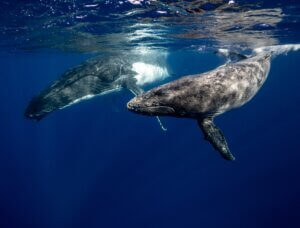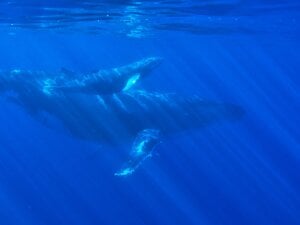Go Vegan to Save the Whales!
When Greenpeace’s “Save the Whales” campaign was launched in April 1975, it triggered a tidal wave of activism that eventually helped secure an international ban on commercial whaling —but the suffering of these intelligent, complex animals goes far beyond the cruel whaling industry. That’s why PETA’s re-launch of the “Save the Whales” campaign is going after the biggest threat to whales today: commercial fishing.
Whales are killed in fishing gear, their habitats are destroyed, and their source of food is diminished—all because of commercial fishing. So PETA’s asking everyone to help “Save the Whales” once again by simply not eating fish and other aquatic animals.

Whales Are Entangled and Killed in Fishing Nets and Other Discarded Equipment
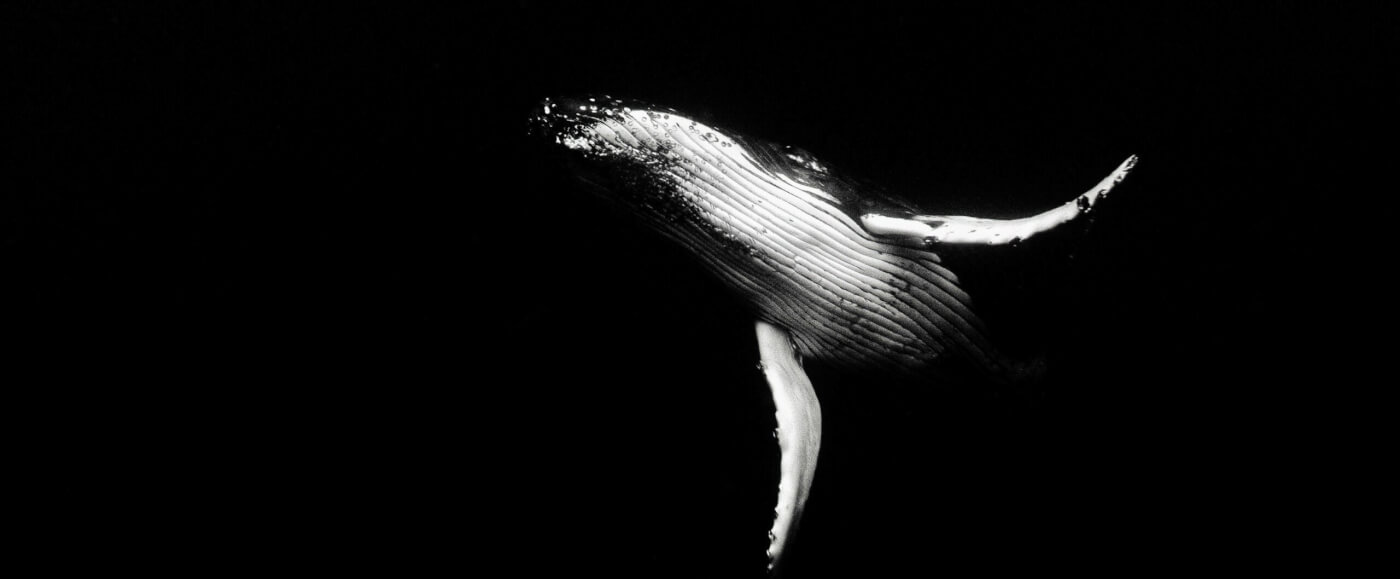
In the fishing industry, whales are callously referred to as “bycatch”—a speciesist euphemism for “nontarget” animals who are caught or become tangled in fishing nets and other gear and are then discarded and left to die. An estimated 300,000 whales, dolphins, and porpoises die each year after being injured by fishing nets or lines.
A pregnant minke whale was found dead on a beach after a discarded trawl net (a net that’s dragged along the ocean floor, leaving it barren and lifeless) became stuck in her mouth, making it impossible for her to eat.
Nearly half the plastic in the Great Pacific Garbage Patch comes from discarded fishing gear, which can be a death trap for whales and other marine species. Recent studies show that more than half of some species of large whales have been entangled at one point in their lives. In many cases, these victims may spend their last moments desperately struggling to free themselves from abandoned fishing nets until they die of exhaustion, starvation, suffocation, strangulation, dismemberment, or other injuries.
A mother sperm whale and her baby died after becoming entangled in a fishing net. According to reports, the mother whale died while trying to save her baby. Fishing net was found in her mouth, and netting completely enveloped the baby.
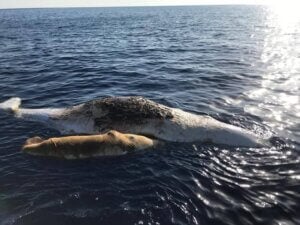
Entanglement in fishing gear continues to be the leading cause of death for the North Atlantic right whale—one of the most endangered large whale species, with fewer than 400 individuals remaining. Since 2017, 50 of these whales have been reported dead or seriously injured. Those individuals make up more than 10% of the total population. These are just some of the instances that have been reported, but the vast majority of whales who become entangled in fishing gear are not even detected. Additionally, whales who survive their initial entanglements with fishing gear but are left severely injured will likely die within three years. Female whales who survive were also found to have much lower birth rates and longer intervals between calving than whales who hadn’t been entangled in fishing gear.
Whales’ and Other Animals’ Food Supply Is Diminished and Habitats Are Destroyed
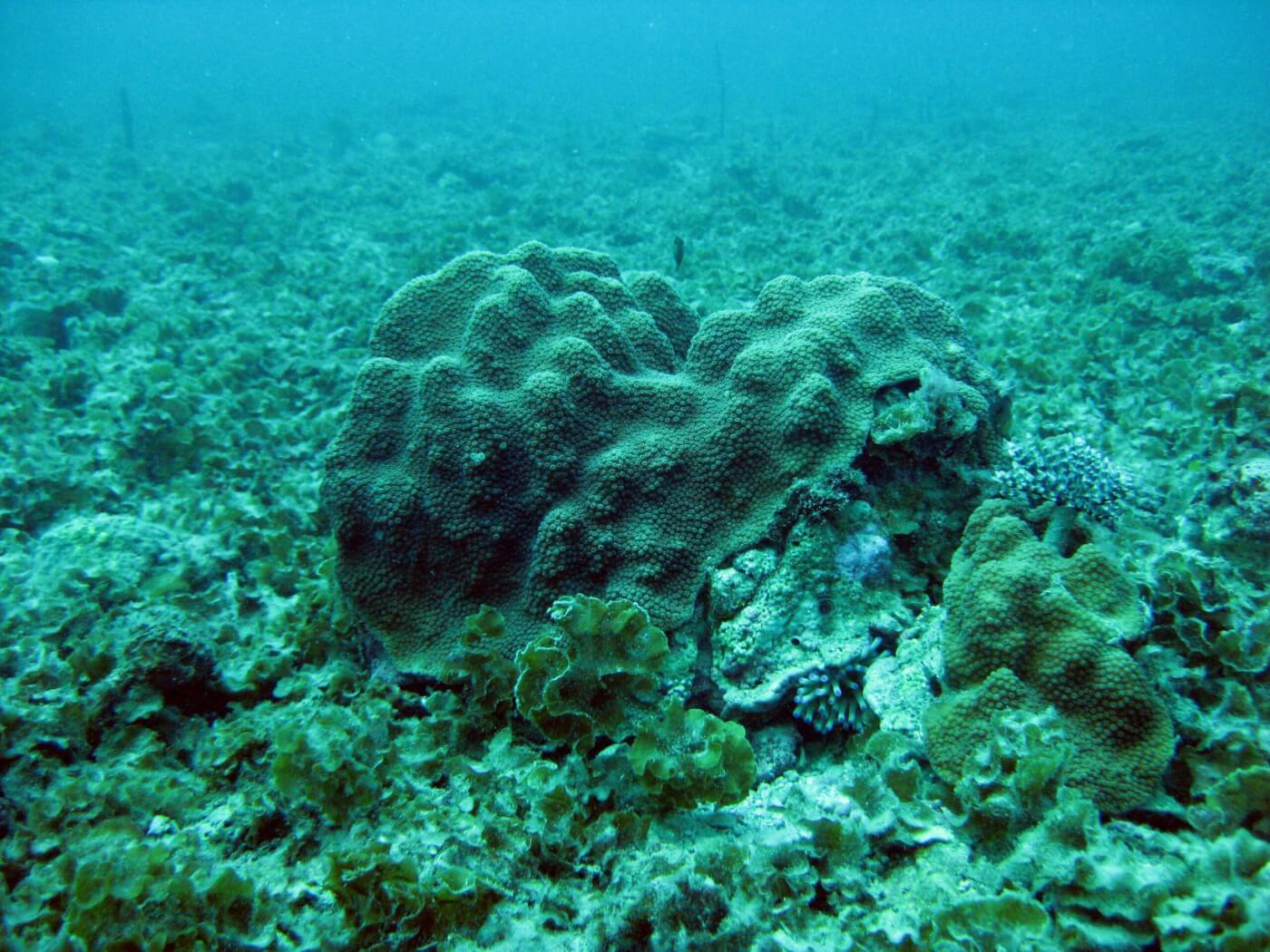
The fishing industry has destroyed our ocean’s ecosystems. An estimated 90% of large-fish populations have been wiped out because of the astronomical number of animals caught.
One study found that the gray whale population—which was thought to have recovered from commercial whaling—was once between three and five times the estimated size of the population today. Researchers have suggested that the ocean is no longer able to feed as many gray whales as it once did.
Commercial fishing is detrimental to the ocean’s habitat and all the species that inhabit it. It’s time to turn the tide against this destructive industry.
Go Vegan to Save the Whales!
Did you know that whales have close-knit family structures and often communicate with one another through song? Mother whales dedicate years to caring for their calves, and some species “whisper” to their babies to protect them from predators. Some species also use individualized calls to refer to one another, much as humans call one another by name.
